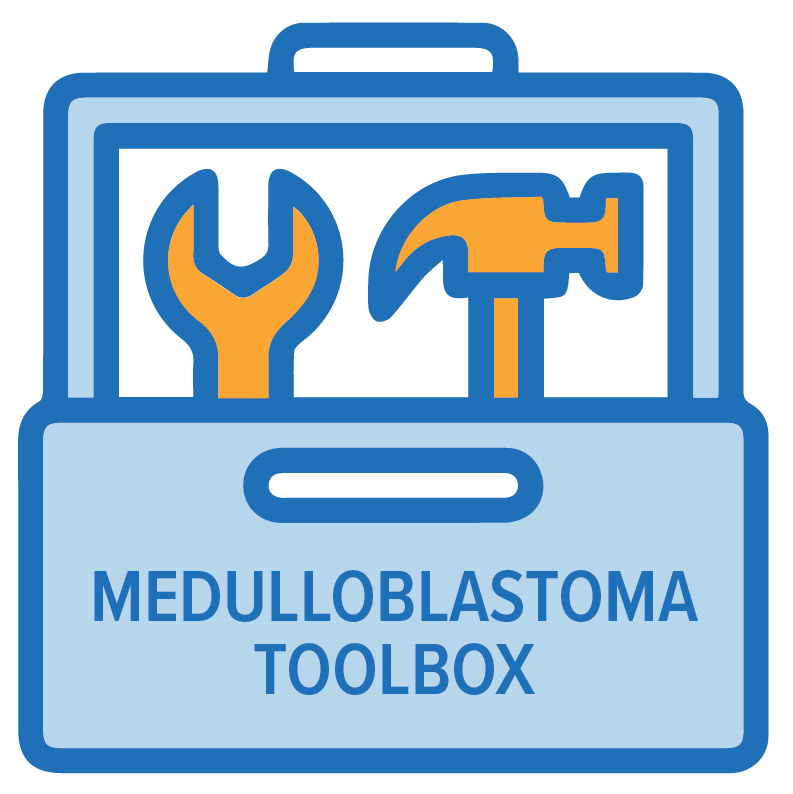Diagnosed with Medulloblastoma?
Welcome to the Medulloblastoma Toolbox
- A free resource sponsored by parents/patients like you
When you or your child is diagnosed with medulloblastoma, there are a few steps that can provide direction and help with treatment options. The good news is that you don’t have to do it alone! Below are some simple steps to build your toolbox and team to help beat medulloblastoma.

1. See if your hospital is a member of prominent brain cancer consortiums such as the Pediatric Brain Tumor Consortium, CONNECT, COG, or PNOC
Not only is this an indication of expertise in medulloblastoma, but it will link you to the leading institutions with medulloblastoma protocols.
It is important to receive care at a hospital that regularly treats medulloblastoma patients. Medulloblastoma acts very differently than other tumors and that expertise can greatly improve the quality of life and care for you or your child.
2. Ask for a Second Opinion
This can be done either directly from your current treating hospital or through a peer hospital. This is important because each medulloblastoma can appear different on initial scans. It is especially important if:
- The Medulloblastoma looks atypical on an MRI
- If the patient is a child
- If you are unsure about your hospital's expertise in medulloblastoma
3. Always Thoroughly Discuss Treatment and Timing
Timely initiation of treatment following tumor resection is critical, as delays can impact disease control, recurrence risk, and patient outcomes.
4. Get Educated on Trials
Most likely you or your child may enroll in several protocols for treatment. View current active trials to learn about options. Ask for background data on trials such as adult data, prior pediatric trials, etc.
5. Join the Medullo Warrior Program
By joining the Medullo Warrior program, you can get personalized one-on-one support from another medullo parent that has been in your shoes. If you can't find the information you're looking for, or are overwhelmed by all the resources, this is a great place to start. The program can also help connect you with hundreds of other medullo families. Best of all, when you join you’ll be connected to a Family Support Coordinator to help you through this journey and be able to draw on the resources of the warrior family network!
6. Talk With Other Parents You Can Trust
You’ll find that groups, such as the Medulloblastoma Support Group for Families, have parents that are willing to help. This group is a safe space to connect with other parents, ask your own questions, get updates, and find answers.
Contact us to be connected to a parent who is willing to provide one-on-one support.